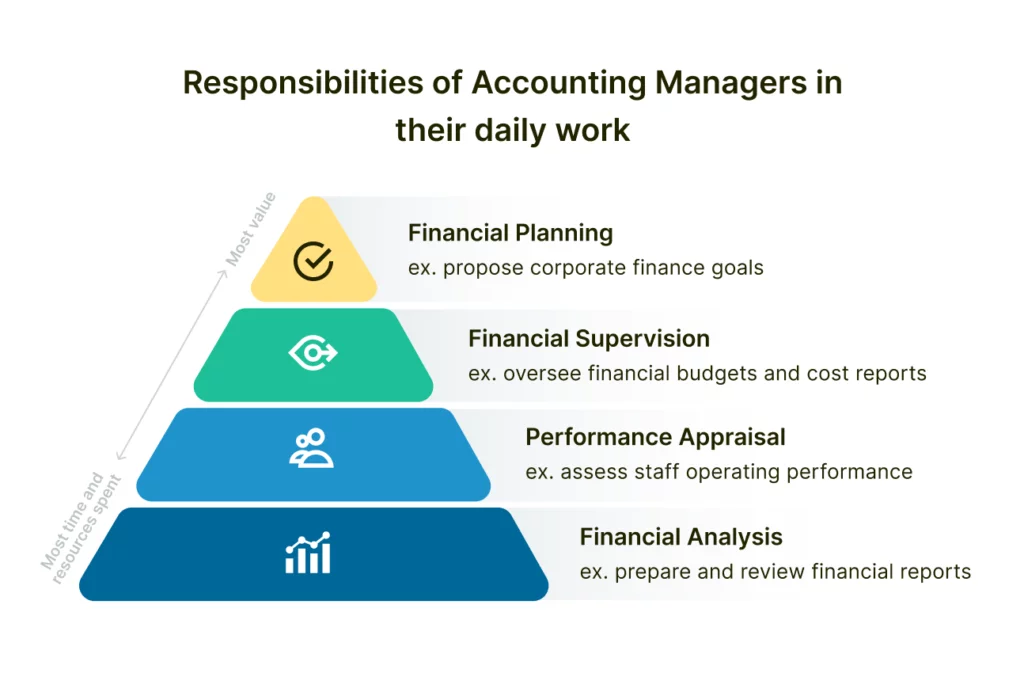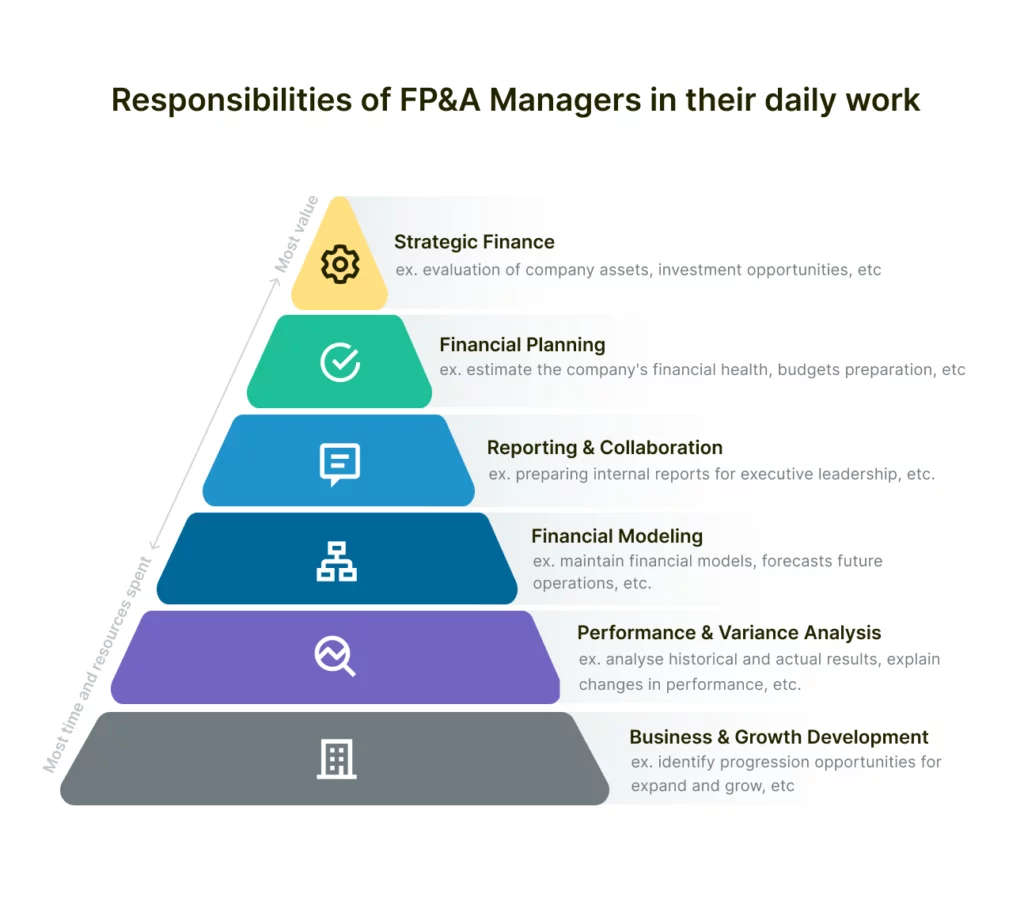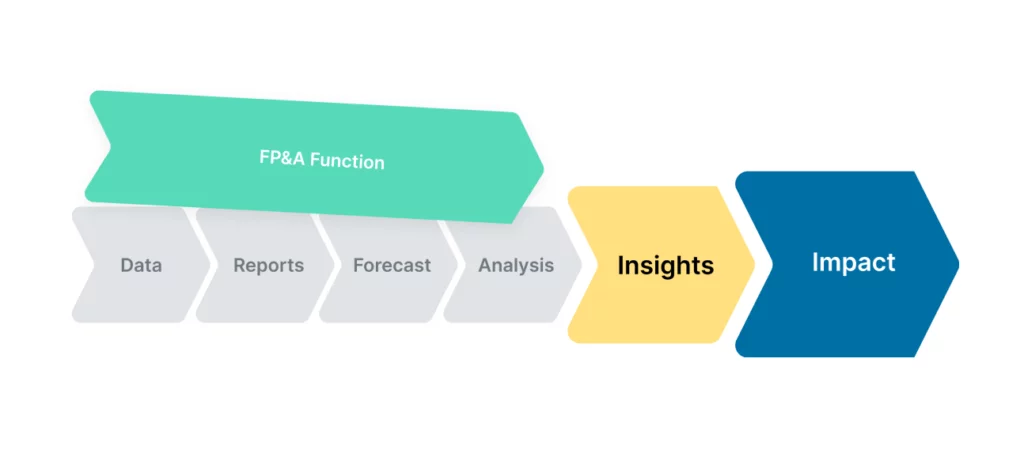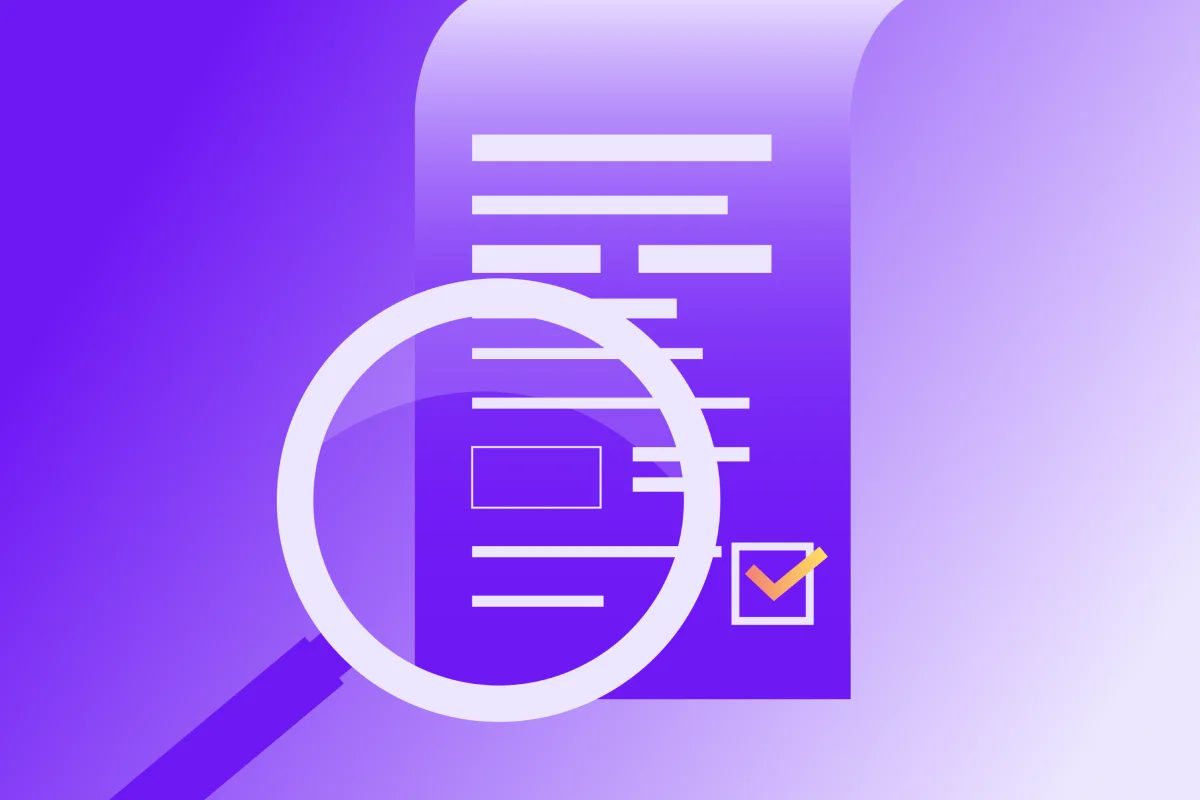In scaling companies, FP&A and accounting roles may be run by the same person, but the two essentially have very different responsibilities. Here, we break down the differences between each one.The titles of accounting manager and FP&A manager are often used interchangeably or thought of as one and the same.However, they are two distinct management roles in a company that approaches financial statements differently and may have very different responsibilities and retribution based on their background and experience.
But first things first: What does FP&A stand for?
FP&A stands for Financial Planning & Analysis.
This is a set of initiatives that help a company plan and analyze its financial performance. It is a critical part of any business’s success, as it provides financial insights to support the decision-making, forecasting, budgeting, and strategic planning processes. Its end-goal? Ensure that the company is making sound decisions based on accurate data, primarily through the use of FP&A Software tools.
Learn more: What is financial planning and analysis?
The role of the accounting manager: Definition and responsibilities
What does an accounting manager do?
The accounting manager comes in first with reports and records of the company’s financial transactions including sales, bills, purchase orders, cash receipts, and disbursements.
The role of an accounting manager is to develop a course of action for analyzing and reporting financial information, warrant that the company follows legal and regulatory requirements, and suggest improvements to business operations and procedures.
Depending on their specific industry and company, accounting managers should also prepare annual budgets, track financial data, and make recommendations on financial decisions.
In addition to accounting skills, accounting managers must also have strong leadership, management, and excellent communication skills.

Here are a few points accounting managers are responsible for in their day-to-day work:
Prepare, analyze, and review financial reports.
Assess staff operating performance and provide feedback.
Propose corporate finance goals and a roadmap to follow in their business unit.
Oversee financial reporting for their organization including tax information, financial budgets, cost reports, and audits.
FP&A managers: The role with major opportunities in 2023
What is an FP&A manager?
The FP&A manager is the person in charge of business forecasting, the creation of financial budgets, and conducting performance-based analyses. They look for data trends or deviations in the company’s financial records and then come up with strategic plans for improvement toward achieving its current objectives and future goals.
The director of FP&A aims to predict future financial outcomes by considering economic and business trends and reviewing past company performance in the forecasting process.
Unlike accountants who are in charge of record-keeping, financial analysts are charged with examining, analyzing, and evaluating the entirety of a corporation’s financial activities, and mapping out the company’s financial future.

The FP&A’s general responsibilities include:
Evaluating whether the company is optimizing its use of assets and investment opportunities.
Estimate the company’s overall financial health, mainly by using key metrics.
Collaborating with other business departments to prepare budgets.
Preparing internal reports for executive leadership teams to support decision-making.
Creating, updating, and maintaining financial models and detailed forecasts of the company’s future operations.
Analyze historical results against previous budgets and forecasts, perform variance analysis to explain changes in performance, and make suggestions for improvements going forward.
Being able to identify progression opportunities for the company to expand or grow.
So who is more important: Accounting or FP&A managers?
Accounting managers are more backward-looking while FP&A managers are forward-looking. This means that accounting managers will generally be more concerned with the past and how to make sure that the numbers match up with what has already been done, whereas FP&A managers will focus on where they want to see the organization in the future and how to get there.

While each financial position provides different skills, both of them have a place in the company and rely on each other to move forward. Thus, you won’t need to choose between one or another, as they can be crucial for the company’s growth if they communicate and collaborate as a single unit.
Which one is more convenient for your business to onboard first will depend on what you are looking for at the moment. If you want someone who can help you plan for the future, then you will need to hire an FP&A manager. However, if you just want someone who can keep track of your finances, then hiring an accountant early on may be better.
What should a possible FP&A manager salary look like?
Financial planning and analysis (FP&A) professionals are highly sought after in today’s business world. Senior management who can evaluate corporate finances and accurately forecast the decisions that an organization will need to make are compensated highly.
Junior analysts in the United States, with 1 to 3 years of experience, usually make around $50K per year, whereas senior FP&A analysts, with 3 to 5 years of experience, can see an annual salary of up to $85K.
On the other hand, an FP&A manager, with 5 to 10 years of experience and an MBA or a Chartered Financial Analyst (CFA) certification, could make between $85K and $115K, plus additional bonuses.
Finally, the pay of a Chief Financial Officer (CFO) of a large, multinational corporation generally ranges between six and seven figures, with extra incentives in the form of stock-based compensation and performance bonuses.
All types of FP&A professionals are essential for any business that wants to remain competitive in the market today.
However, the total compensation levels might vary in the financial analysis field depending on the business and the industry.
Are you interested in finding open FP&A positions but don’t know where to start?
Indeed, Glassdoor and Linkedin Jobs may provide you with extensive job descriptions of new full-time and part-time opportunities that may meet your requirements and expectations.
Learn more: Uncovering the secret pay scales: An in-depth look at FP&A salaries across various role levels
Wrapping up
Regardless of your position – FP&A director or accounting manager – it is critical to understand the possibilities that modern technologies can provide you in your management role to improve the company’s financial performance.
A clear example of being ready for the future as a senior executive is being able to incorporate finance automation technologies to cut down on time spent on manual data entry and reporting and eliminate non-value-adding tasks. By having relevant work experience with modern FP&A solutions, FP&A managers will be able to deliver results in a fraction of the time and adopt a business partnering role with the CEO and stakeholders.
Are you already considering upgrading your tech stack with tools to automate financial planning and analysis but don’t know where to start?
At Abacum, we empower FP&A teams of high-growth tech companies to become true strategic business partners in the organization. By implementing FP&A technology, your finance team will be able to accelerate time-to-insight with powerful automation, streamline cross-functional collaboration across the business, and transform the data collection process to prepare for the future.










